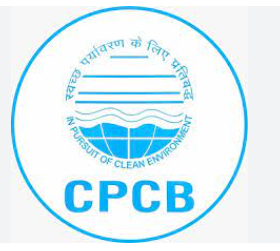Central Pollution Control Board (CPCB)
The Central Pollution Control Board (CPCB) is a statutory organization under the Ministry of Environment, Forest and Climate Change, Government of India. It was established in 1974 under the Water (Prevention and Control of Pollution) Act, 1974, and later entrusted with additional responsibilities under the Air (Prevention and Control of Pollution) Act, 1981, and the Environment (Protection) Act, 1986. The primary function of the CPCB is to promote cleanliness of streams and wells in different areas of the States by prevention, control and abatement of water pollution, as well as to improve the quality of air and to prevent, control or abate air pollution in the country.
Establishment and History
The CPCB was constituted on September 23, 1974, under the provisions of the Water (Prevention and Control of Pollution) Act, 1974. The board was initially set up to address the growing concerns of water pollution in India. In 1981, the CPCB was also entrusted with the responsibilities of air pollution control under the Air (Prevention and Control of Pollution) Act, 1981. With the enactment of the Environment (Protection) Act, 1986, the CPCB was further empowered to take measures for the protection and improvement of the environment.
Functions and Responsibilities
The main functions and responsibilities of the CPCB include:
- Advising the Central Government on matters related to prevention, control, and abatement of water and air pollution
- Planning and executing nationwide programs for the prevention, control, and abatement of water and air pollution
- Coordinating the activities of State Pollution Control Boards (SPCBs) and Pollution Control Committees (PCCs)
- Providing technical assistance and guidance to SPCBs and PCCs
- Laying down, modifying, or annulling the standards for environmental quality and emission or discharge of environmental pollutants
- Collecting, compiling, and publishing technical and statistical data related to water and air pollution
- Disseminating information on pollution control, management, and preventive measures through mass media, publications, and training programs
Organizational Structure
The CPCB is headed by a Chairman, who is assisted by a Member Secretary and other members. The board has its headquarters in Delhi and has seven zonal offices located in Bengaluru, Bhopal, Kolkata, Lucknow, Shillong, Vadodara, and Pune. The CPCB also has five laboratories across the country, which are responsible for conducting environmental monitoring and analysis.
National Air Quality Monitoring Programme (NAMP)
The CPCB has been operating the National Air Quality Monitoring Programme (NAMP) since 1984. Under this program, the CPCB monitors air quality across the country through a network of monitoring stations. As of 2021, there are more than 800 manual monitoring stations covering 344 cities/towns in 28 states and 6 Union Territories of the country. The NAMP focuses on monitoring four air pollutants: Sulphur Dioxide (SO2), Nitrogen Dioxide (NO2), respirable suspended particulate matter (PM10), and fine particulate matter (PM2.5).
National Water Quality Monitoring Programme (NWMP)
The CPCB, in association with SPCBs and PCCs, has been monitoring the water quality of rivers, lakes, wells, and groundwater across the country under the National Water Quality Monitoring Programme (NWMP). The program covers 2500 monitoring locations across 28 states and 6 Union Territories. The water quality is assessed based on parameters such as pH, dissolved oxygen, biochemical oxygen demand, total coliform bacteria, and heavy metals.
Industrial Pollution Control
The CPCB plays a crucial role in controlling industrial pollution by setting standards for effluent and emission limits, and by monitoring compliance with these standards. The board has developed an industry-specific environmental guidelines and standards for various sectors such as cement, thermal power plants, iron and steel, and pharmaceuticals. The CPCB also operates the Comprehensive Environmental Pollution Index (CEPI), which assesses the environmental quality of industrial clusters across the country.
Solid Waste Management
The CPCB has been actively involved in promoting sustainable solid waste management practices in the country. It has formulated guidelines and standards for the management of municipal solid waste, plastic waste, e-waste, and biomedical waste. The board also provides technical assistance to local bodies and state governments in implementing solid waste management projects and in setting up waste processing and disposal facilities.
Public Awareness and Capacity Building
The CPCB conducts various public awareness programs and campaigns to educate the public about the importance of pollution control and environmental protection. It also organizes training programs and workshops for stakeholders, including industry representatives, government officials, and NGOs, to build their capacity in managing environmental issues.
Challenges and Way Forward
Despite the efforts of the CPCB and other agencies, India continues to face significant challenges in controlling pollution and protecting the environment. Some of the key challenges include:
- Rapid industrialization and urbanization leading to increased pollution load
- Inadequate infrastructure for waste management and pollution control
- Weak enforcement of environmental regulations and standards
- Limited public awareness and participation in environmental protection
To address these challenges, the CPCB needs to strengthen its monitoring and enforcement mechanisms, promote the adoption of cleaner technologies and practices, and enhance collaboration with stakeholders. The board also needs to focus on building the capacity of SPCBs and PCCs, and on promoting research and innovation in pollution control and waste management.


